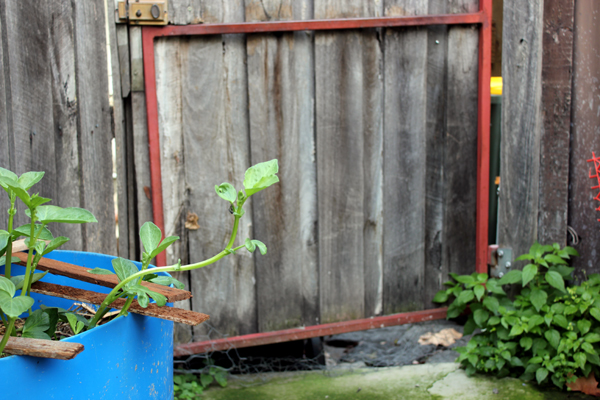I work from an idyllic lean-to in my backyard, where I look out at the grand, spreading Jacaranda that grows two doors down. My desk also affords a narrow L-shaped view onto the cobblestone alley: the slice visible underneath the back gate, as well as a sliver on the lower part of one side, where the hinges are set. This morning, as I worked, I watched the legs of someone who was shooting up.
My house is a terrace with a frontage on a small street and a rear courtyard accessible from a main road by the alley. When houses were first built here, there were no cars or sewer system. Nightsoilmen carried buckets of shit to their horse-drawn carts by way of the back entrance. Now, I use it to slip out quickly when we’re short of milk.
Just on the other side of the gate is a nook that can’t be seen from the road. One morning recently I heard a shuffle, looked up, and saw feet. Then I saw an arc of urine splash the stones. Today I saw tattered runners and dark, baggy trackpants with a thick silver stripe down the side. A jacket sleeve trailed the ground; I imagined it jammed sloppily into the waistband.
The feet were anxious, weight shifting from one to the other. I watched, pulse racing, wondering if their owner would piss or jump on a bin and try to vault the gate.
But the man kept shuffling. I could hear him fiddling, anxious, using the bin lid as a bench. After several minutes, the legs went slack. He leaned back against the fence, his body released, his feet still. He stayed there a long while, so close and so far, and I kept working.



